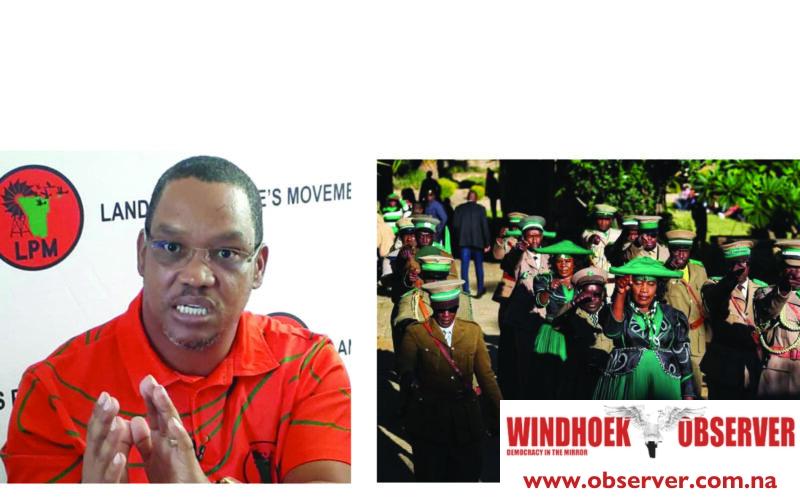Allexer Namundjembo
The Landless People’s Movement (LPM) has accused the government of siding with Germany at the expense of justice for victims of the 1904–1908 Herero and Nama genocide.
The accusation comes as LPM, together with the Ovaherero Traditional Authority (OTA) and the Nama Traditional Leaders Association (NTLA), continues its legal challenge against the 2021 joint declaration between Namibia and Germany.
On Monday, LPM described the government’s recent legal actions as a “betrayal” of genocide victims, saying it has chosen to protect Germany instead of pursuing accountability.
The party criticised the decision to hire advocate Raymond Heathcote to argue that Namibian courts have no jurisdiction over Germany, calling it a “wasteful expenditure” of public funds.
“Is the government so devoid of a sense of history that it does not grasp the importance of a European imperialist power facing justice in an African court?” LPM asked.
LPM accused the state of perpetuating “neocolonial domination” through its collaboration with Germany, claiming that aid and development projects from Berlin have come at the cost of justice for the affected communities.
The party said this cooperation dates back to 1989, when Namibia allegedly agreed to remain silent on reparations in exchange for aid.
It also said the government has deviated from the 2006 parliamentary resolution that called for direct engagement with affected communities, opting instead for bilateral talks with Germany without the consent of genocide descendants.
LPM said repeated calls for reparations have been ignored, adding that “diplomatic ties seem to prioritise aid over accountability.”
The party warned that the patience of affected communities “has limits” and that if the government continues to disregard their demands for justice, it should not be surprised if “unrest emerges in the foreseeable future.”
LPM condemned the government’s “contradiction” in defending Germany while denouncing alleged genocide elsewhere, calling it a “neo-colonial puppet state.”
The dispute over the joint declaration stems from Germany’s 2021 acknowledgement that atrocities committed against the Ovaherero and Nama people constituted genocide “from today’s perspective.”
Germany pledged €1.1 billion (approximately N$20 billion) over 30 years for development and reconciliation projects but excluded direct reparations or legal liability.
Traditional leaders and LPM argue that the negotiations excluded genocide descendants and violated the 2006 parliamentary resolution.
In 2023, the groups filed a High Court application challenging the legality of the declaration and sought to have Germany joined as a respondent.
The government has defended the agreement, describing it as a diplomatic effort aimed at reconciliation rather than financial compensation.
President Netumbo Nandi-Ndaitwah, during the country’s first Genocide Remembrance Day earlier this year, said Germany has acknowledged the atrocities and issued an apology but that the process is “not yet complete.”
At that time she said Namibia remains committed to pursuing a settlement that reflects genuine reparative justice.




